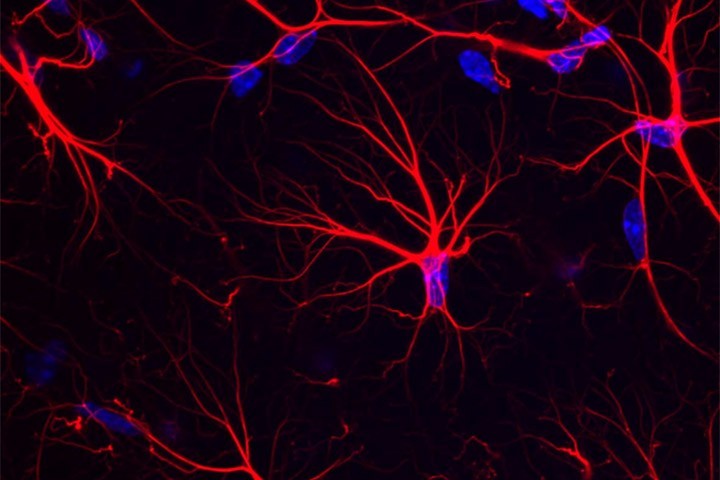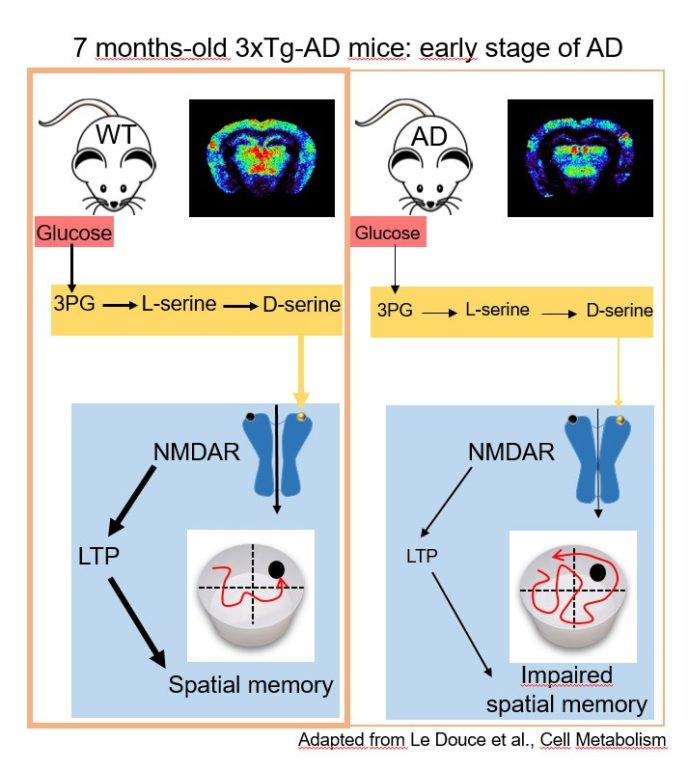
Aude Panatier in Cell Metabolism
Impairment of Glycolysis-Derived L-Serine Production in Astrocytes Contributes to Cognitive Deficits in Alzheimer’s Disease. Juliette Le Douce*, Marianne Maugard*, Julien Veran*, Marco Matos*, Pierrick Jégo+, Pierre-Antoine Vigneron+, Emilie Faivre+, Xavier Toussay,Michel Vandenberghe, Yaël Balbastre, Juliette Piquet, Elvire Guiot, Nguyet Thuy Tran, Myriam Taverna, Stéphane Marinesco, Ayumi Koyanagi, Shigeki Furuya, Mylène Gaudin-Guerif, Sébastien Goutal, Aurélie Ghettas, Alain Pruvost, Alexis-Pierre Bemelmans, Marie-Claude Gaillard, Karine Cambon, Lev Stimmer, Véronique Sazdovitch, Charles Duyckaerts, Graham Knott, Anne-Sophie Hérard, Thierry Delzescaux, Philippe Hantraye, Emmanuel Brouillet, Bruno Cauli, Stéphane H.R. Oliet, Aude Panatier# et Gilles Bonvento#. Cell Metabolism, 3 March 2020.
DOI : 10.1016/j.cmet.2020.02.004
*co-first autors
+equal contribution
#These authors jointly supervised this work
Proper brain functioning relies on the close metabolic and synaptic interplay between neurons and astrocytes. Interestingly, the early stage of Alzheimer’s disease is associated with a decrease in brain metabolism and deficits in synaptic functions that are believed to underlie cognitive decline. However, whether there is a causal link between these processes remained unknown.
The consumption of glucose by astrocytes leads to the production of various metabolites including L-serine, a precursor of D-serine, the endogenous co-agonist of synaptic NMDA receptor that is essential for long-term synaptic plasticity and memory. Thanks to a collaboration with the group of Gilles Bonvento (CNRS-CEA-University of Paris-Saclay) Aude Panatier and Stéphane Oliet (Neurocentre Magendie) show in a mouse model of Alzheimer’s disease that a decrease in glucose consumption by astrocytes leads to a reduction in the production of L-serine and, consequently, in D-serine supply. As a result, synaptic NMDA receptors activity is decreased, thereby impairing neuronal plasticity and memory. Importantly, such early cognitive deficits can be fully rescued by L-serine food supplementation.
The identification of the major role played by a glucose metabolite, L-serine, at an early stage of Alzheimer’s disease and the success of a nutritional supplementation opens the way to new therapeutic strategies in this neurodegenerative pathology.
See the comment and press release in french
Last update 31/03/20

